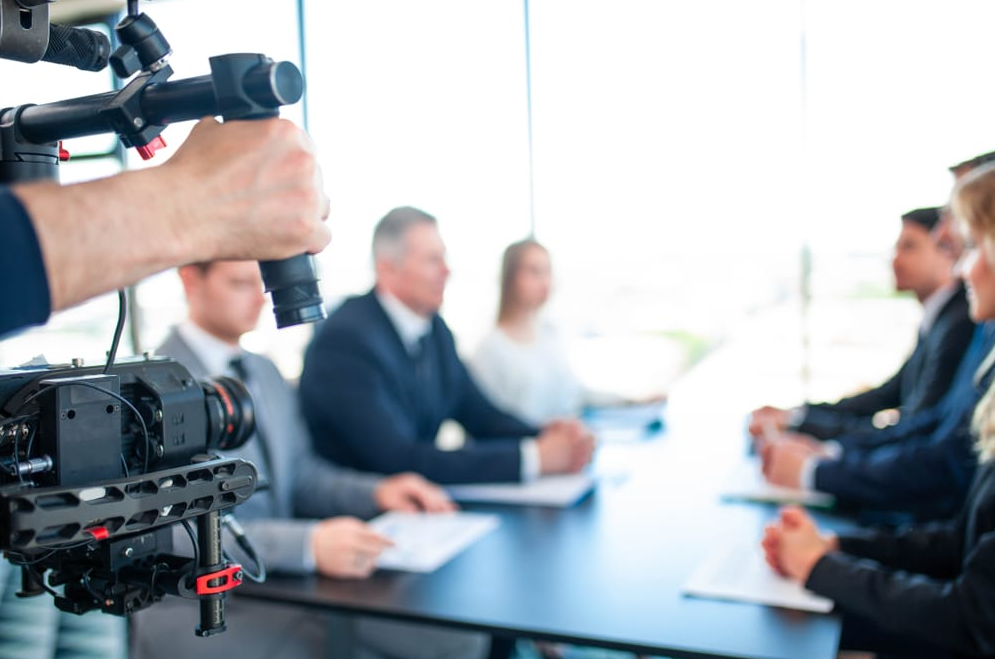The Ultimate Guide to Legal Videography for Attorneys and Legal Teams
The Ultimate Guide to Legal Videography for Attorneys and Legal Teams
Blog Article
The Intricacies of Legal Videography and Its Role in Capturing Crucial Facts for Evidential Purposes in the Legal Field
In the realm of the legal area, the use of videography has actually ended up being an indispensable tool for recording the intricacies and nuances that can make or break a case. From recording criminal offense scenes to tape-recording witness testimonies, lawful videography plays a critical duty in providing important details with unequaled quality and accuracy. Past the surface level of simply tape-recording events, there exists a maze of complexities and considerations that need to be browsed to guarantee the admissibility and credibility of video clip proof. Recognizing the technical facets, legal needs, and strategic effects of lawful videography is essential for lawyers looking for to use its complete capacity in strengthening their instances.
Evolution of Legal Videography
Exactly how has legal videography evolved within the legal field throughout the years? Legal videography has actually gone through a considerable transformation, adapting to the technical advancements and changing needs within the lawful career. Legal videography was largely used for basic recordings of lawful process and depositions. With the introduction of high-def electronic cameras, advanced editing and enhancing software, and online systems, the function of lawful videographers has broadened to incorporate a wider variety of services.

Moreover, the surge of virtual procedures and remote depositions in recent years has more thrust the advancement of legal videography, requiring videographers to adapt their skills to capture proceedings properly in a digital setting (Legal Videography). On the whole, the development of lawful videography has been noted by a change in the direction of more advanced modern technology, superior professionalism and trust, and a more comprehensive extent of services to fulfill the evolving needs of the legal area
Importance of High-Quality Video Footage
Top notch footage in legal videography is vital for properly documenting and offering aesthetic evidence in a qualified and professional way. The clarity and information caught in top quality video footage can be important in lawful procedures, enabling a specific examination of events, expressions, and details that may be critical to a situation. Juries, juries, and lawyers rely on aesthetic proof to recognize complicated scenarios, and poor-quality video footage can cause false impressions or doubts concerning the authenticity of the proof provided.
Additionally, high-quality footage can improve the overall discussion of evidence, making it extra influential and engaging. This can ultimately reinforce the integrity of the legal group presenting the proof and increase the probability of a desirable outcome for their customers.
Methods for Effective Paperwork
To make sure detailed and accurate paperwork in legal videography, utilizing efficient techniques is vital in capturing crucial details and evidence. Maintaining an in-depth log of all footage, including timestamps and summaries of the web content, is crucial for very easy recommendation and access during legal procedures. By implementing these techniques, lawful videographers can enhance the high quality and dependability of their documents, ultimately strengthening the telltale value of their recordings.
Admissibility and Authentication of Video Clip Evidence
In the realm of legal videography where precise documents is critical, the admissibility and authentication of video evidence play a critical duty in determining the trustworthiness and validity of documented products. Admissibility refers to the approval of video evidence in a law court, while verification makes certain that see this here the video provided is authentic and unaltered. For video evidence to be admissible, it has to satisfy lawful requirements such as importance, authenticity, and reliability. The chain of guardianship, which documents the handling of the video from news videotaping to presentation in court, is important for establishing credibility.
Strategies such as electronic trademarks, metadata analysis, timestamps, and specialist testament can be utilized to verify video evidence. Inevitably, the admissibility and verification of video evidence are vital in promoting the stability of legal proceedings and guaranteeing that justice is offered based on trustworthy information.
Enhancing Legal Methods With Video Innovation

Additionally, video clip innovation enables for the development of visually engaging reconstructions of crime scenes, accidents, or various other occasions vital to a situation. These restorations can help clarify intricate information, timelines, and spatial connections, helping in the comprehension of go now intricate legal problems. Video clip depositions can protect testimonies with high integrity, making sure that vital statements are properly caught and can be replayed as required. In general, the integration of video clip technology right into legal strategies not just enhances the discussion of evidence yet likewise enhances the persuasiveness and trustworthiness of lawful disagreements.
Final Thought
To conclude, legal videography plays a crucial function in recording essential details for evidential functions in the lawful area. Through the evolution of innovation and strategies for effective paperwork, top notch footage can enhance legal methods and give valuable evidence in court. Legal Videography. Making sure the admissibility and verification of video clip proof is key to using video innovation properly in lawful process
Understanding the technical aspects, lawful needs, and critical effects of lawful videography is necessary for lawful experts looking for to utilize its full potential in bolstering their instances.
Lawful videography was mostly utilized for easy recordings of legal proceedings and depositions.Utilizing video clip modern technology in lawful methods can substantially strengthen the performance of legal professionals in presenting proof and disagreements in a compelling and influential manner. On the whole, the combination of video modern technology right into legal approaches not just enhances the discussion of proof but additionally enhances the persuasiveness and reliability of lawful disagreements.
In conclusion, lawful videography plays an important role in recording necessary details for telltale functions in the legal area.
Report this page